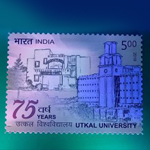Sponsoring P.G. Department:
Botany
Year of Establishment:
2000
Historical Background of the Course:
Since 2000, the course has produced more than 250 Masters and 40 Ph.D. Awardees in the subject. The M.Sc. Applied Microbiology course has been prepared to keep in view the unique requirements of M.Sc. Applied Microbiology students GATE, ICAR-NET, ICMR-NET, and CSIR-NET syllabus. The emphasis is to provide students the latest information along with due weightage to the concepts of classical Applied Microbiology so that they are able to understand and appreciate the current interdisciplinary approaches particularly in the field of research and innovation in microbiology, life sciences, and biological sciences and its role in societal development. The subject is a mixture of the traditional components with the modern aspects of biochemistry, molecular biology, genetics, industrial, medical, environmental, and agricultural microbiology, immunology, and biotechnology. Over the years the subject has shown an enormous gain in information and applications owing to tremendous inputs from research in all its aspects. Thus, the course content also lists new practical exercises so the students get a hands-on experience of the latest techniques that are currently in use. The four semesters of M.Sc. syllabus is a balanced, carefully-crafted course structure taking care of different aspects of microbiology, namely Fundamentals of microbiology, Microbial diversity, Microbial Physiology, and Molecular Biology, Microbial Ecology and Genetics, Immunology, Biostatistics and Instrumentation Techniques, Microbial biotechnology, Agricultural microbiology and Plant pathology, Industrial microbiology, Environmental microbiology, Pharmaceutical, and clinical microbiology. All these aspects have been given due weightage over the four semesters having special emphasis on some aspects in the last semester. Students should be encouraged to opt for one allied elective paper from other Life Sciences like Botany, Environmental science, Zoology, and Biotechnology courses to increase interdisciplinary approaches of understanding and application. In recent decades, several new diseases have emerged in different geographical areas, with pathogens including Ebola virus, Zika virus, Nipah virus, and coronaviruses (CoVs). Recently, a new type of viral infection emerged which is termed severe acute respiratory syndrome CoV-2 (SARS-CoV-2) that poses a high threat to global public health. In view of the current scenario, the course will explore new scopes in the field of microbiology and will also inspire students to pursue higher studies in Microbiology in various sectors like research, health, teaching professionals, etc. The course will also enable students for becoming an entrepreneur and to get employed in several sectors.
Vision:
- To be a center of excellence in higher education with a focus on innovative teaching, learning, research, consultancy, and extension activities in the field of Microbiology.
Mission:
- To provide the students with the knowledge, skill in this advanced field of science
- To create and disseminate knowledge through interdisciplinary research and creative inquiry in the field of Microbiology
- To equip the students with problem-solving, leadership, and teamwork skills and inculcate a sense of commitment to quality, ethical behavior, and respect for others
Goal:
- To provide a platform for free flow of ideas where discovery, creativity, and professional development finds scope for fulfillment in this advanced field of science
- To ensure academic excellence in this dynamic knowledge economy by exposing the students to new ideas, new ways of understanding, new ways of knowing in their journey of intellectual transformation









